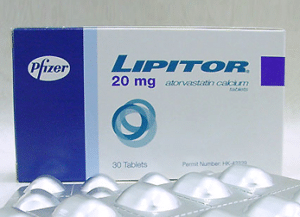
Should You Consider a Lipitor Lawsuit?
Lipitor, also known as atorvastatin, was approved in 1996 by the U.S. Food and Drug Administration (FDA). It is typically prescribed to patients to lower their cholesterol levels and is given in daily doses ranging from 10 mg to 80 mg. Lipitor works to prevent a liver in the enzyme from creating low density lipids, also known as “bad’ cholesterol, in that it can lead to blood clots and blocked arteries. According to Pfizer, the drug’s manufacturer, Lipitor is intended to prevent the production of this enzyme and help to reduce an individual’s risk of heart disease.
However, according to several studies, Lipitor may increase a patient’s risk of developing type 2 diabetes. If you or someone you love took Lipitor to lower your cholesterol levels and were later diagnosed with diabetes or other complications, contact Attorney Group for California to learn more about your legal rights. We want to help those who have suffered injury, and we can help answer your questions and address your concerns. If you decide to pursue a claim, we can connect you with an affiliated attorney who can assist you in filing your California Lipitor lawsuit.
Side Effects of Lipitor
In February 2012, the FDA required Pfizer to update Lipitor’s warning label to reflect a possible link between type 2 diabetes and the medication. The FDA also requested action from other drug makers who had created products similar to the design and ingredients as Lipitor.
According to those filing a Lipitor lawsuit, severe side effects include:
- Jaundice
- Kidney failure
- Type 2 diabetes
- Dark urine
- Muscle problems
- Increased cancer risk
- Liver complications
- Anemia
- Pancreatic dysfunction
- Cognitive loss
- Neurological disorders
Patients have also reportedly experienced mild, more common side effects including throat irritation, joint pain, stomach cramps, indigestion, incomplete or infrequent bowel movements, gas, headaches, nausea, diarrhea and fatigue.
Patients who fall into one or more of the following categories may be more likely to suffer from severe Lipitor side effects:
- Those 65 years of age or older
- Those with a smaller body frame
- Those who drink alcohol on a regular basis
- Those who take more than one cholesterol medication
- Those with liver disease, kidney disease or diabetes
- Women, particularly those who are postmenopausal
If you or someone you love is currently suffering from sever side effects, consider filing a Lipitor lawsuit in California to seek compensation for your injuries.
Lipitor Lawsuits Pending in the U.S.
Patients who have been diagnosed with diabetes are encouraged to file a Lipitor lawsuit in California to seek compensation for their injuries. Although the medical community has acknowledged that Lipitor may result in several other serious side effects such as cognitive damage, liver dysfunction, rhabdomyolisis and heart attacks, it is only recently that a potential link between Lipitor and type 2 diabetes has been established.
Lipitor lawsuits claim that Pfizer knew or should have known that its product was not safe for consumers and yet still decided to place it on the market. Pfizer allegedly marketed Lipitor as safe and effective despite having knowledge of an increased risk of elevated blood glucose levels and type 2 diabetes. If you have been injured in California, you may be eligible to recover damages for pain and suffering, medical expenses and lost wages by filing a Lipitor lawsuit against the manufacturer.
Injured? Attorney Group for California Can Help
If you or a loved one is taking Lipitor and have been diagnosed with type 2 diabetes or you are experiencing other severe complications that you feel are caused by the medication, you may be eligible to file a Lipitor lawsuit in California and hold the manufacturer responsible for compensation for your suffering. Contact Attorney Group for California today to determine whether you have a claim and to be connected with an affiliated attorney. He or she can assist you in filing your Lipitor lawsuit and work to help you seek the compensation to which you may be entitled.





